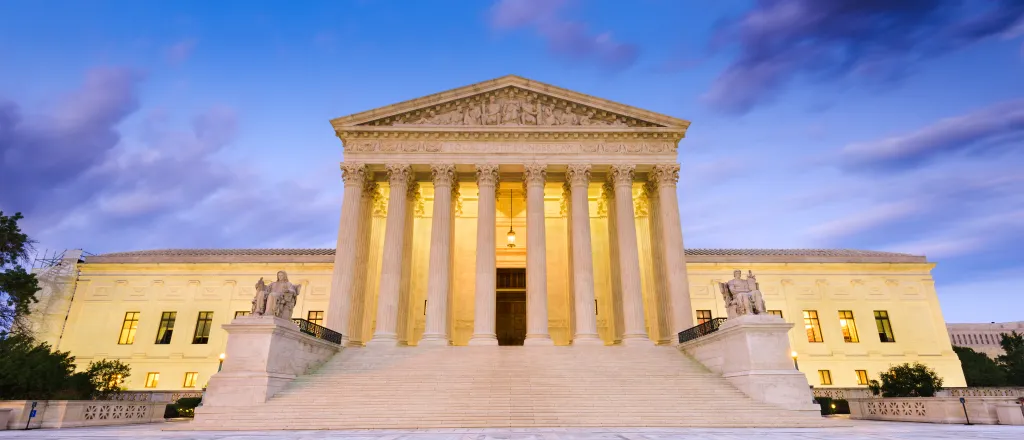
Analysis: Abortion could be severely limited in 23 states if Supreme Court overturns Roe v. Wade
© iStock - SeanPavonePhoto
(The Center Square) – Abortion would be banned or severely limited in 23 states if the U.S. Supreme Court overturns Roe v. Wade, an analysis by the Guttmacher Institute indicates.
“Changes to the makeup of the U.S. Supreme Court in 2018 raise the possibility that Roe v. Wade could be severely undermined – or even overturned – essentially leaving the legality of abortion to individual states,” the Guttmacher Institute states in an analysis of state abortion laws. “A reversal of Roe could establish a legal path for states’ pre-1973 abortion bans, as well as currently unenforced post-1973 bans, to take effect.”
If a reported Supreme Court draft ruling on a Mississippi case leaked by Politico is true, the court would reportedly overturn two landmark abortion cases, Roe v. Wade and Planned Parenthood of Southeastern Pennsylvania v. Casey, leaving the legality of abortion up to the states.
The draft ruling, if true, relates to Dobbs v. Jackson Women's Health Organization. In it, Justice Samuel Alito reportedly argues, “The Constitution does not prohibit the citizens of each State from regulating or prohibiting abortion. Roe and Casey arrogated that authority. We now overrule those decisions and return that authority to the people and their elected representatives.”
In 1973, the Supreme Court struck down Texas’s ban on abortion, ruling abortion was a “fundamental right.” In 1991, it granted review of a challenge to several Pennsylvania abortion restrictions in Casey, which included a question on the court overturning or reaffirming Roe. The majority reaffirmed Roe.
Since Casey, legislatures in mostly red states began passing incrementally restrictive abortion laws; legislatures in blue states began passing incrementally extensive abortion on demand laws.
As a result, if Roe were overturned, abortion would be banned or severely limited in 23 states and legally protected in 16 states and the District of Columbia.
Prior to Roe, 10 states banned abortion: Alabama, Arizona, Arkansas, Michigan, Mississippi, North Carolina, Oklahoma, Texas, West Virginia and Wisconsin.
Some of these laws were enjoined by a court order and aren’t in effect. Texas’ ban, prompting Roe, was permanently enjoined. But courts would likely order the enjoined laws back into effect if Roe were overturned.
After Roe, Texas and 12 other states enacted “trigger laws” intended to take effect once Roe is overturned. They include Arkansas, Idaho, Kentucky, Louisiana, Mississippi, Missouri, North Dakota, Oklahoma, South Dakota, Tennessee, Utah and Wyoming.
The trigger laws ban all or nearly all abortions once Roe is overturned; some include exceptions. Those laws “enacted after Roe are designed to be ‘triggered’ and take effect automatically or by swift state action if Roe is overturned,” Guttmacher explains.
Citizens and legislatures in four states also passed constitutional amendments explicitly stating that abortion is not a right and public funds can’t be used for abortions: Alabama, Louisiana, Tennessee, and West Virginia.
Texas also passed the Heartbeat Act prohibiting abortions from being performed once a heartbeat of the preborn baby is detected. The case was challenged and ultimately defeated after the Supreme Court rejected requests to halt it and the Fifth Circuit effectively ended all challenges last month.
By contrast, 16 states legalized abortion on demand: California, Colorado, Connecticut, Delaware, Hawaii, Illinois, Maine, Maryland, Massachusetts, Nevada, New Jersey, New York, Oregon, Rhode Island, Vermont, and Washington.
Most of their laws “prohibit the state from interfering with the right to obtain an abortion before viability or when necessary to protect the life or health of the pregnant person,” Guttmacher states.
Four states and the District of Columbia legalized abortion throughout an entire pregnancy: Colorado, New Jersey, Oregon, and Vermont.
In a 2019 report, the Center for Reproductive Rights estimated that if Roe were overturned, 34 states and five territories wouldn’t have abortion protections. The report was conducted before newer laws were enacted, like New Jersey’s for example, which recently codified abortion rights as state law.
If Roe were overturned, it argues, states would be “divided into abortion deserts where it would be illegal to access care, and abortion havens, where care would continue to be available. Millions of people living in abortion deserts, mainly in the South and Midwest, would be forced to travel to receive legal care, which would result in many more people being unable to access abortion for a variety of financial and logistical reasons.”
An official opinion on Dobbs is expected to be released in June or July. If Roe were to be overturned, state trigger laws and other court actions would likely go into effect this summer.

















